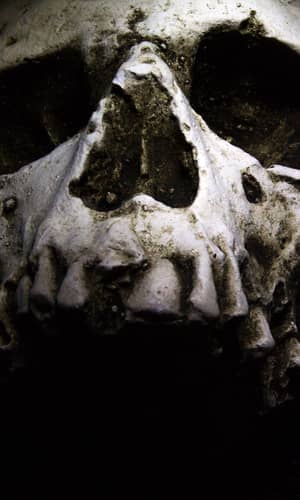Professional, peer-reviewed papers about the Bible’s teaching on death: its origin, pervasiveness, and eventual end.
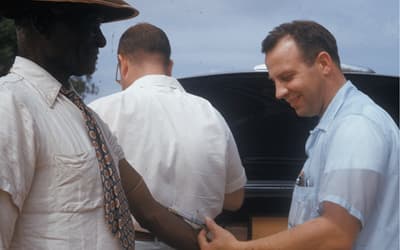
Darwinism and the Tuskegee Syphilis Study
Dr. Jerry Bergman • Nov. 17, 2021
The history of the Tuskegee Syphilis Study is a salient example of the negative fruits of Darwinian racism.
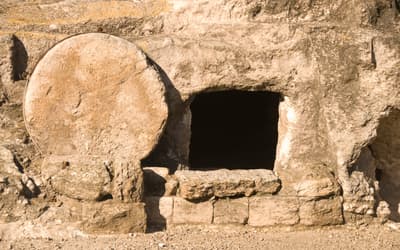
Jesus’s Resurrection: An Archaeological Analysis
Matt Dawson • May 12, 2021
Several archaeological finds are indirect evidences which build a cumulative case supporting the biblical account of Jesus’s resurrection.
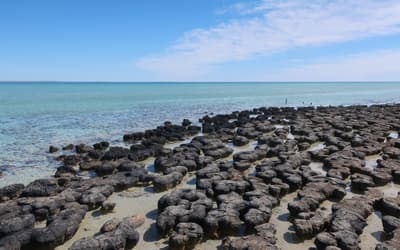
Using Stromatolites to Rethink the Precambrian-Cambrian Pre-Flood/Flood Boundary
Ken P Coulson • May 5, 2021
Many creationists are actively engaged in finding the Flood/post-Flood boundary, but most creationists consider the Precambrian-Cambrian contact more attractive.

Biblical Problems with Identifying Tall el-Hammam as Sodom
Simon Turpin • March 10, 2021
A number of evangelical archaeologists and biblical scholars have concluded that the best candidate to date for biblical Sodom is to be found north-east of the Dead Sea at Tall el-Hammam.
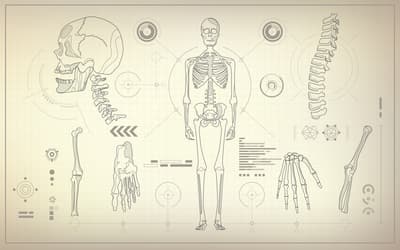
The Failed Attempt to Prove Jewish Inferiority by a Skeleton Collection
Dr. Jerry Bergman • Dec. 16, 2020
Over 100 innocent people were murdered to prove a theory that turned out to be not only wrong but based on an erroneous secular philosophy, namely Darwinism.

Gypsies Massacred as Part of the Darwinian Eugenic Holocaust
Dr. Jerry Bergman • Dec. 9, 2020
Attempts to apply Darwinian eugenics were part of the Nazi effort to produce a superior race in Germany.
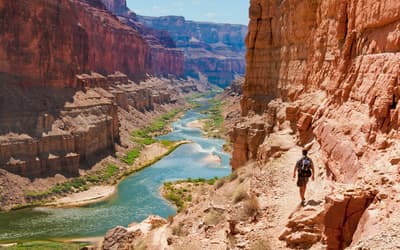
The Grand Canyon, Monument to an Ancient Earth: The Deceptions Continue
Dr. Terry Mortenson • Dec. 2, 2020
The Grand Canyon, Monument to Ancient Earth? rejects the truth of Genesis regarding the Flood and the age of the earth.
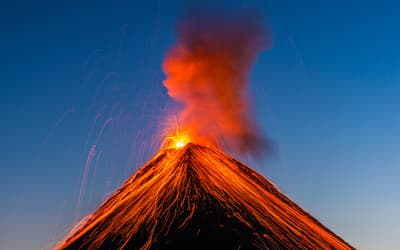
Effects of the Fall on the Physical Creation: A Biblical Analysis
Zachary Klein , et. al. • Aug. 12, 2020
To interpret the natural world through the lens of Scripture, one must have a correct understanding of the Fall and its effects on the physical creation.

Critical Analysis of Hugh Ross’ Progressive Day-Age Creationism Through the Framework of Young-Earth Creationism
David McGee • Feb. 13, 2019
The most important part of the debate between views on creationism is about the presuppositions of each group and their biblical hermeneutics.
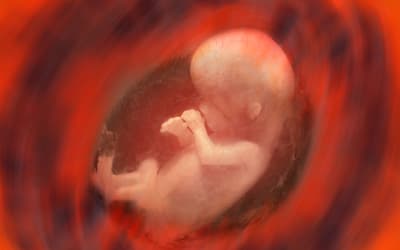
Abortion: A Biblical, Biological, and Philosophical Refutation
Matt Dawson • Jan. 23, 2019
A holistic approach which accounts for biblical, biological, and philosophical truths must conclude that the unborn represent human beings with full personhood.
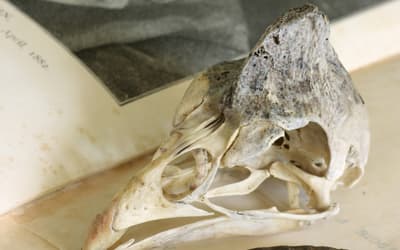
Refuting Dubious Claims Regarding Natural Selection
Dr. Jason Lisle • Dec. 5, 2018
Randy Guliuzza has made some controversial claims regarding the cause and nature of adaptation of organisms to their environment. We examine his claims.
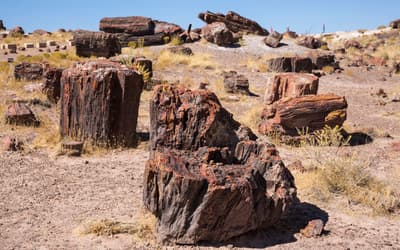
Fossil Grove and other Paleozoic Forests as Allochthonous Flood Deposits
Kurt P. Wise • Nov. 7, 2018
Fossil Grove offers multiple evidences in support of a huge forest biome floating atop the world’s pre-Flood oceans.
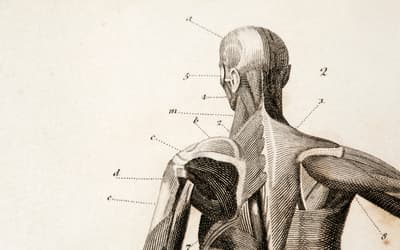
Biblical Integration in Anatomy and Physiology: A Design Approach
Elizabeth Sled • June 20, 2018
We have been created fearfully and wonderfully by our Creator God, and the human body showcases God’s intricate design.

An Exponential Decay Curve in Old Testament Genealogies
Philip M. Holladay • Oct. 19, 2016
The lifespans of Old Testament people born after the Flood reveal a numerical pattern known as an exponential decay curve.
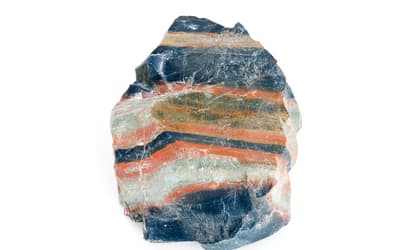
Terrestrial Vertebrates Dissolved Near Flood Fountains
Harry Dickens , et. al. • Nov. 18, 2015
Terrestrial vertebrates close to the Flood fountains dissolved then precipitated out to form Precambrian-Cambrian sedimentary phosphate deposits.

The Second Law of Thermodynamics and the Curse
Dr. Danny R. Faulkner • Nov. 13, 2013
Many recent creationists believe that the second law of thermodynamics came into being as a result of the Fall or the curse. I argue that this is not supported by Scripture nor science.

The Importance of an Historical Adam
Simon Turpin • May 29, 2013
In secular culture it is common to view the biblical history of Adam as a story, myth, or a parable but this is now also becoming the standard interpretation for many within the evangelical community.

Did Death of Any Kind Exist Before the Fall?
Simon Turpin • April 3, 2013
Death, whether animal or human, physical or spiritual, is a consequence of man’s disobedience toward his Creator and an intrusion into His “very good” creation.
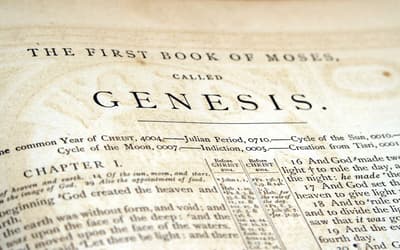
Creation Date of Adam from the Perspective of Young-Earth Creationism
David McGee • Nov. 28, 2012
This article reveals how young-earth creationists have concluded the approximate age of Adam and to explain the reason for a 6,000 year range between both groups.
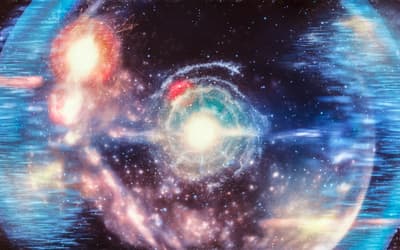
The Unbeliever at War with God: Michael Ruse and the Creation-Evolution Controversy
Callie Joubert • Sept. 5, 2012
The evidence to be considered will indicate that a fear of God and afterlife play a major role in the psychology of unbelief, and that points toward the realism of Scripture.

Review of John Lennox’s Book Seven Days That Divide the World: The Beginning According to Genesis and Science
Simon Turpin • June 27, 2012
Lennox reasons that the church has been wrong in the past over its interpretation of Scripture in light of scientific discovery, and that those holding to a young earth are wrong again.

What Makes Us Human, and Why It Is Not the Brain: A Creationist Defense of the Soul: Reply
Callie Joubert • June 13, 2012
To depart from Scripture at any point is neither safe nor right. Thus Estabrook’s discussion of my paper (Joubert 2011) in which he expressed his difficulties with my defense of the soul is welcome.

What Makes Us Human, and Why It Is Not the Brain: A Creationist Defense of the Soul: Discussion
Darrell Estabrook • June 13, 2012
Certainly there is more to humans than a complex brain architecture from which a mind would seem to emerge. However, this reader has two difficulties.

What Makes Us Human, and Why It Is Not the Brain: A Creationist Defense of the Soul
Callie Joubert • Dec. 14, 2011
A Christian view of the world entails that science is not a Christian’s ultimate or sole source of knowledge and the physical world is not the only world there is.

Emergentism and the Rejection of Spirit Entities: A Response to Christian Physicalists
Callie Joubert • Aug. 10, 2011
Emergentism defies commonsense; there is also no scientific evidence that something material could produce an entity of a kind radically different from itself.

Systematic Theology Texts and the Age of the Earth
Dr. Terry Mortenson • Dec. 16, 2009
In the past few decades there has been a growing controversy in society and in the Church over evolution and the age of the earth.

Christian Theodicy in Light of Genesis and Modern Science
Dr. Terry Mortenson • Nov. 11, 2009
The problem of evil is always a challenge for the Christian witness. However, William Dembski’s “solution” proves logically and biblically unsound.

Hebrew Metaphysic
Doug Kennard • Dec. 31, 2008
Metaphysical development in Hebrew biblical texts is especially elucidated through a series of word studies with a shifting emphasis that each cross-pollinates the others.

Proceedings of the Microbe Forum, June 2007
Dr. Joe Francis , et. al. • Jan. 9, 2008
For many years the roles of microbes as part of God’s wonderful design have been neglected. Perhaps it is because many people associate microbes as the cause of death, disease, and suffering.
Discussion of Death in Answers Research Journal
Why is there death? Has it always been a part of the creation from the very beginning? If not, how did death become a part of reality? Can one avoid death, and if so, how? Is there life after death? Is there a difference between plant death, animal death, and human death? Is there a difference between human physical death and spiritual death? The scientific majority says that death, disease, suffering, and extinction have been part of the creation for hundreds of millions of years. Can that claim be harmonized with the Bible’s teaching? These important questions cannot and should not be ignored.
The Bible has much to say about these questions. Combining the truth of many scriptures from the Old and New Testament, it is clear that physical and spiritual death of humans and physical death of animals were not part of the original creation but became part of reality when Adam and Eve sinned (e.g., Genesis 1:29–31, 2:16–17, 3:8–19; Romans 5:12, 8:19–23; Ephesians 2:1–3). As punishment for sin, God cursed his creation in judgment. Therefore, Christians cannot compromise with (accept) the idea of millions of years of earth history—which according to evolutionists included the disease, death, and extinction of billions of non-human creatures—before the Fall of Adam.
Jesus Christ came into the world to solve the problem of sin and death by His own substitutionary death to take the punishment that sinners deserve. By His resurrection, He conquered death and provides salvation, eternal life, and freedom from the fear of death to all who admit and turn from their sin and trust in Jesus Christ alone as Savior and Lord (e.g., John 5:24; Romans 6:23; Hebrews 2:9, 14–17, 9:27–28). When Christ returns, He will put an end to death for believers but consign unrepentant sinners to eternal death (conscious punishment) in hell, the lake of fire (Matthew 25:30, 41, 46; Revelation 20:11–15, 21:3–8).
The aim of research papers in this section of Answers Research Journal (ARJ) is to deeply consider the origin, cause, aspects, and end of death and to consider what God has done and will do about it. ARJ considers these issues in the light of biblical teaching, historical developments, current circumstances, and scientific proclamations about life, death, and the history of the creation.
